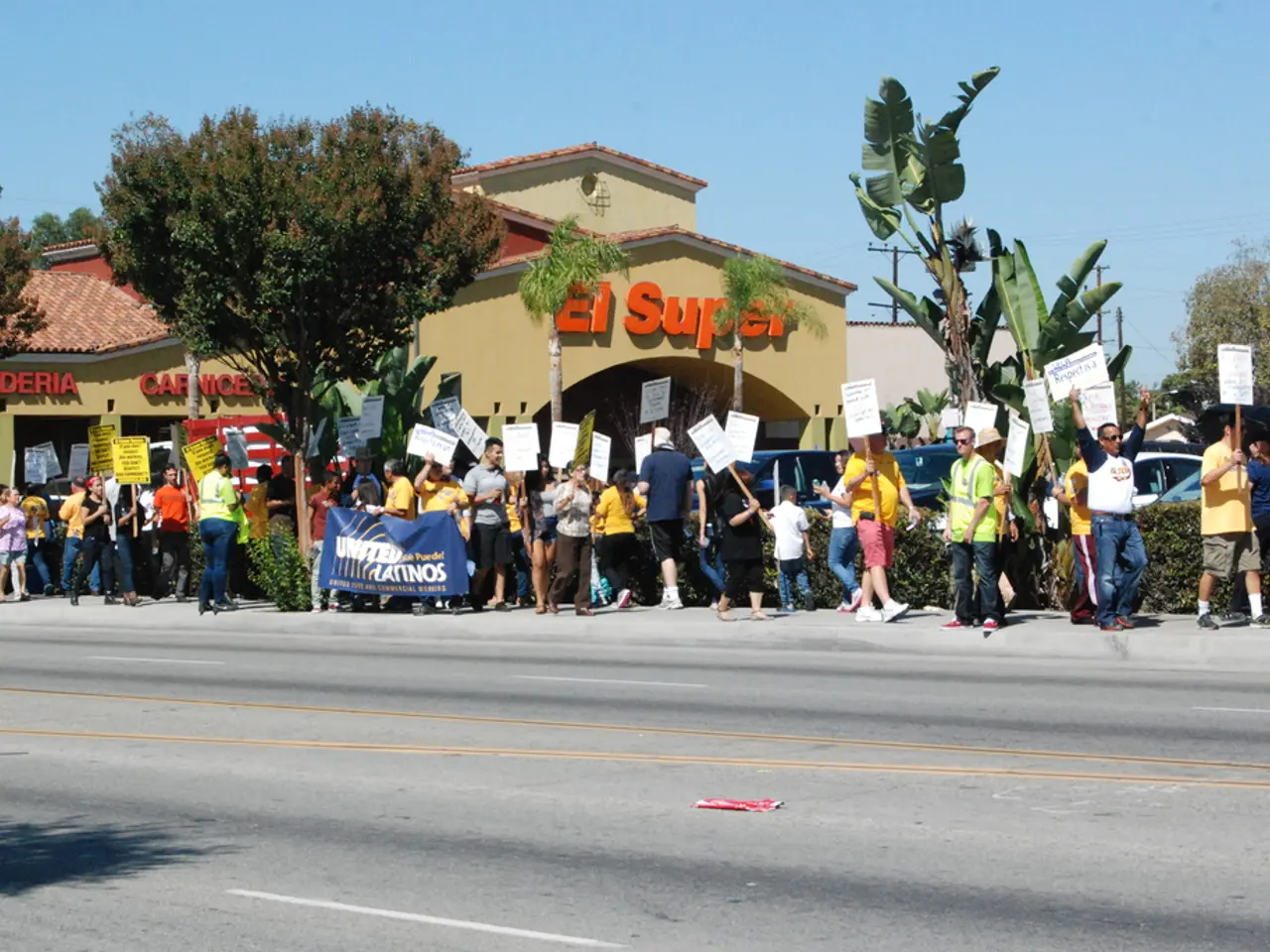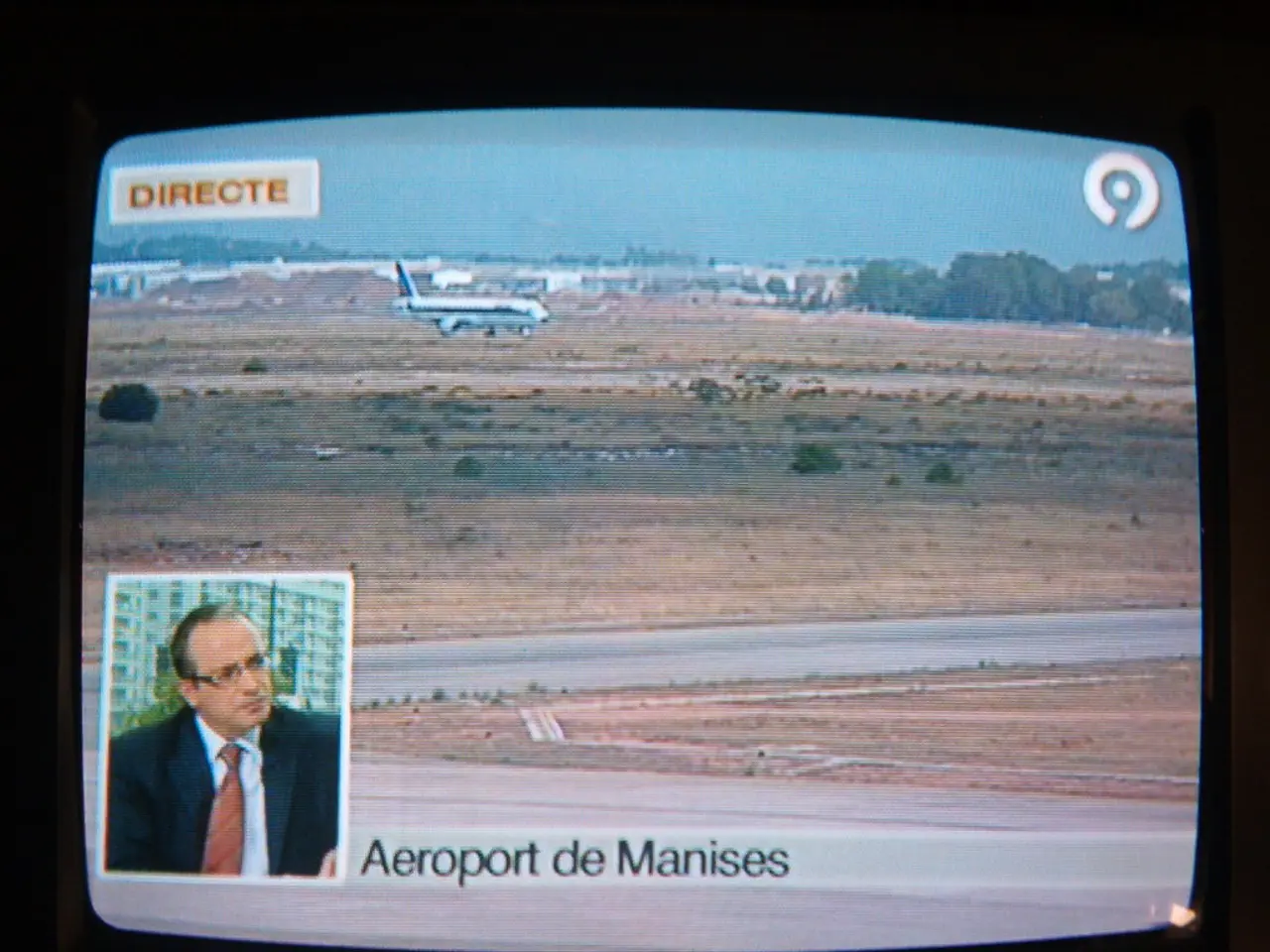Bianco justified the candidate selection process: "We've made the candidates more competitive by approving their testimonies"
Peronist Mayors Running for Legislative Positions in Buenos Aires Election
In the upcoming September 7th election in Buenos Aires, several Peronist mayors are seeking to expand their political influence by running for legislative positions. This move, which has been seen in various districts, reflects a strategic approach to consolidate votes and maintain influence in multiple positions simultaneously.
Juan José Mussi, the Peronist mayor of Berazategui, is one such example. He has announced his candidacy for councilor in his district. Similarly, Leonardo Nardini, the Peronist mayor of Malvinas Argentinas, is running for councilor in his district.
Moreover, Marcos Pisano, another Peronist mayor, is vying for a senatorial seat in the seventh section. Mario Ishii, a Peronist mayor, is also contesting for a senatorial position in the first electoral section.
The alliances Somos Buenos Aires and La Libertad Avanza are also following suit. The former has four municipal chiefs as candidates, while the latter has two mayoral candidates.
The inclusion of mayors in these lists is justified by Carlos Bianco, the Minister of the Interior of the Province of Buenos Aires. He argues that these mayors, as some of the most competitive candidates, are being put forward to ensure victory in the election. Bianco also emphasizes that the use of testimonial candidates, who run for office primarily to attract votes but do not intend to assume the position if elected, is not prohibited by law.
The lists of Fuerza Patria, the ruling party in Buenos Aires, include mayors who are candidates, as well as provincial officials who head the lists. Notable figures include Verónica Magario (vice-governor) and Gabriel Katopodis (Minister of Infrastructure).
In the past, testimonial candidacies have been a common strategy in Argentine politics, often used as a tool to consolidate votes without committing to office-holding. However, in the 2023 Buenos Aires election, there seems to be a deliberate effort to reduce this practice and promote genuine candidacies.
Quilmes Mayor Mayra Mendoza, for instance, is running for a position in the provincial Legislature with the intention to actually assume the role, not merely to boost votes. This represents a move towards greater electoral transparency and accountability in candidate intentions.
In conclusion, while testimonial candidates have played a significant role in Argentine electoral strategy in the past, the 2023 Buenos Aires election appears to mark a shift towards greater sincerity in political representation. The election is considered key, as the goal is to prevent further harm to Buenos Aires residents and ensure that the best candidates are put forward to represent them.
- Source
News about the September 7th election in Buenos Aires highlights a strategy among Peronist mayors to pursue legislative positions, aiming to consolidate votes and maintain influence in multiple positions simultaneously. (policy-and-legislation)
The election lists for the 2023 Buenos Aires election seem to indicate a deliberate effort to reduce testimonial candidacies and promote genuine candidacies, as exemplified by Quilmes Mayor Mayra Mendoza, who intends to assume a role in the provincial Legislature. (general-news)








